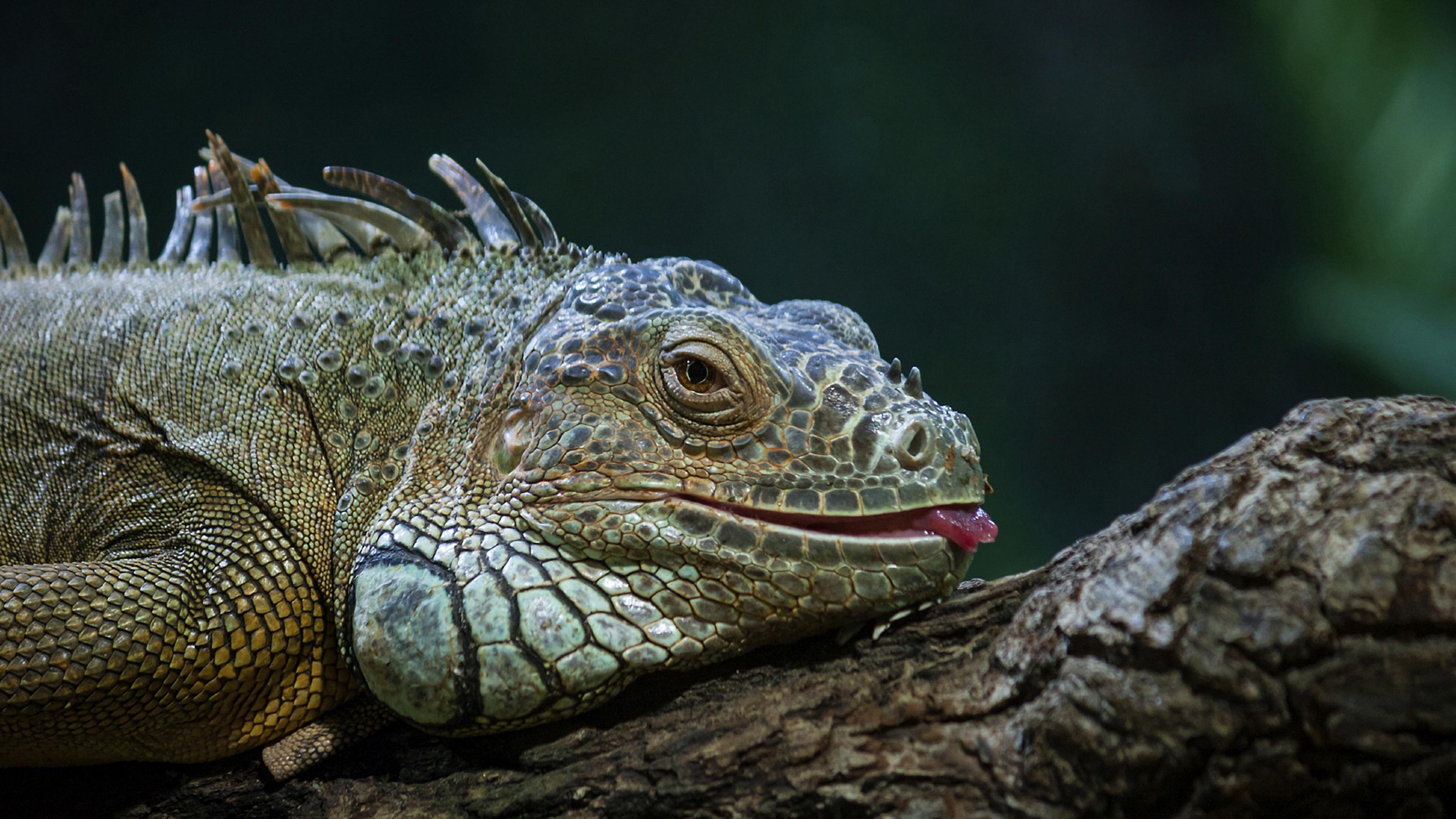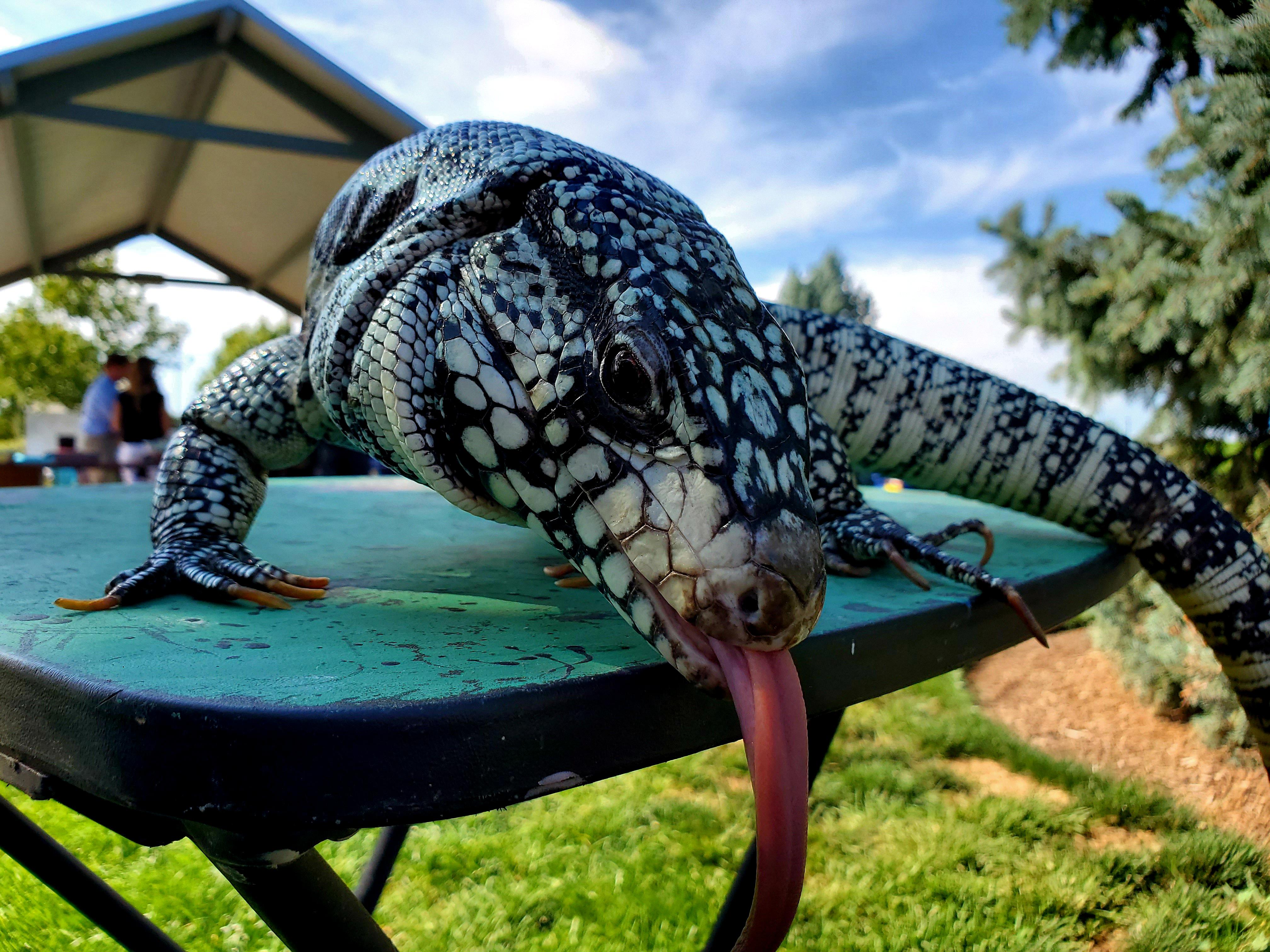Can Reptiles Feel Affection? Unveiling The Warmth Behind The Scales
Ever wondered if reptiles can feel affection? If you're one of those folks who think reptiles are just cold-blooded creatures incapable of emotions, you might want to stick around for this ride. The world of reptiles is far more complex than we give them credit for. These scaly friends of ours might not express emotions like our furry pals, but they sure have their own unique ways of showing affection. Let’s dive in and unravel the mystery behind reptile emotions!
Reptiles have long been misunderstood as emotionless beings, but recent studies and observations suggest otherwise. As we explore their behaviors and interactions, it becomes clear that reptiles are capable of forming bonds and expressing affection in their own distinct ways. From iguanas recognizing their owners to snakes showing preference for certain handlers, there’s a lot more to these creatures than meets the eye.
This article will take you on a journey through the fascinating world of reptile emotions. We’ll explore the science behind their behavior, debunk common myths, and provide real-life examples of reptiles forming connections with humans and even other animals. So, if you’re curious about whether your pet reptile loves you back, you’re in the right place!
- Unveiling The Secrets Of Masahub2 The Ultimate Guide Yoursquove Been Waiting For
- 7movierulz The Ultimate Guide To Staying Updated On Latest Movie Releases
Understanding Reptile Behavior
Before we dive into the heart of the matter, let’s talk about reptile behavior. Reptiles are often seen as distant and unemotional, but this perception couldn’t be further from the truth. Their actions might not scream “I love you” like a dog wagging its tail, but they do communicate in subtle ways that require a keen eye to notice.
Key Traits in Reptile Behavior
Here are some key traits that define reptile behavior:
- Reptiles are highly observant and can recognize familiar faces.
- They exhibit preferences for certain environments and handlers.
- Some species display signs of stress or contentment based on their surroundings.
Understanding these traits is crucial if you want to decode whether your reptile feels affection towards you. It’s all about paying attention to the little details.
- Hd Movie Area Your Ultimate Destination For Cinematic Bliss
- Jimmy Garoppolo Girlfriend 2024 The Untold Story You Need To Know
Can Reptiles Feel Affection? The Science Behind It
Now, let’s get to the heart of the question: can reptiles feel affection? While reptiles don’t have the same emotional range as mammals, they do experience basic emotions like fear, contentment, and even excitement. These emotions are rooted in their evolutionary history and survival instincts.
Studies have shown that reptiles have a limbic system, albeit less developed than in mammals. This part of the brain is responsible for processing emotions. While their emotional spectrum might not be as broad as ours, it’s enough for them to form bonds and show preference for certain individuals.
Neurological Evidence of Affection in Reptiles
Scientists have discovered that reptiles exhibit neurological responses similar to those seen in mammals when forming bonds. For instance, some species of lizards and snakes show increased activity in brain regions associated with pleasure when interacting with familiar handlers. This suggests that they do experience a form of emotional attachment.
Real-Life Examples of Reptile Affection
Let’s bring it down to earth with some real-life examples of reptiles showing affection. You don’t have to look far to find stories of reptiles forming deep connections with their owners. From iguanas cuddling up to their handlers to tortoises following their keepers around, there’s plenty of evidence to suggest that reptiles do feel affection in their own way.
Stories of Reptile Bonding
Here are a few heartwarming tales:
- An iguana named Luna who insists on sleeping on her owner’s bed every night.
- A bearded dragon named Max who greets his owner at the door every time they come home.
- A tortoise named Charlie who refuses to eat unless his favorite handler is present.
These stories highlight the unique ways reptiles express affection. While it might not be as overt as a dog jumping up to greet you, it’s no less meaningful.
Myths About Reptile Emotions
There are plenty of myths floating around about reptile emotions, and it’s time to set the record straight. One of the biggest misconceptions is that reptiles are incapable of forming emotional bonds. Another common myth is that their behavior is purely instinctual and lacks any emotional depth.
Debunking the Myths
Here’s why these myths don’t hold water:
- Reptiles have been observed showing preference for certain individuals, which suggests emotional attachment.
- Their ability to recognize familiar faces and environments indicates a level of cognitive and emotional processing.
By debunking these myths, we can gain a deeper understanding of the emotional lives of reptiles and appreciate them for the complex creatures they are.
Factors Influencing Reptile Affection
Several factors influence whether a reptile feels affection towards its owner. These include the species of the reptile, its individual personality, and the quality of care it receives. Some reptiles are naturally more social and affectionate than others, while others might take more time to warm up to their handlers.
Species-Specific Traits
Here’s a breakdown of some common reptile species and their affection tendencies:
- Iguanas: Known for their friendly demeanor and ability to form strong bonds with their owners.
- Bearded Dragons: Highly social and enjoy interacting with their handlers.
- Snakes: While not as overtly affectionate, some species like ball pythons show preference for certain handlers.
Understanding these species-specific traits can help you better connect with your reptile companion.
How to Build a Bond with Your Reptile
If you’re hoping to foster a deeper connection with your reptile, there are several steps you can take. Consistent handling, providing a comfortable environment, and offering enrichment activities can all contribute to building trust and affection.
Tips for Bonding
Here are some practical tips:
- Handle your reptile regularly but gently to build trust.
- Create a comfortable and stimulating environment that meets their needs.
- Offer treats and positive reinforcement to encourage positive interactions.
By following these tips, you can create a strong bond with your reptile and encourage them to express their affection.
Common Challenges in Reptile Care
While reptiles are fascinating creatures, caring for them comes with its own set of challenges. One of the biggest hurdles is understanding their unique needs and behaviors. Misinterpreting their actions can lead to misunderstandings and even harm the bond you’re trying to build.
Overcoming Challenges
Here’s how to tackle common challenges:
- Stay informed about your reptile’s species-specific needs and behaviors.
- Consult with experienced reptile keepers or veterinarians when needed.
- Be patient and observant, as building trust takes time.
By addressing these challenges, you can create a harmonious relationship with your reptile companion.
The Role of Environment in Reptile Affection
A reptile’s environment plays a crucial role in their emotional well-being. A comfortable and enriching habitat can encourage positive behaviors and strengthen the bond between you and your reptile. On the flip side, a subpar environment can lead to stress and behavioral issues.
Creating the Perfect Environment
Here’s how to create an ideal environment:
- Provide adequate space for your reptile to move and explore.
- Ensure the temperature and humidity levels are appropriate for their species.
- Include hiding spots, climbing structures, and other enrichment items.
A well-designed environment can make all the difference in fostering a loving relationship with your reptile.
Conclusion: Do Reptiles Feel Affection?
In conclusion, reptiles are far more emotionally complex than many people realize. While their expressions of affection might not be as obvious as those of mammals, they do form bonds and show preference for certain individuals. By understanding their behavior, debunking common myths, and providing a nurturing environment, you can build a strong and loving connection with your reptile companion.
So, the next time someone tells you reptiles can’t feel affection, share this article with them! And if you’re a reptile owner, take a moment to reflect on the unique bond you share with your scaly friend. Who knows, they might just be showing you love in their own special way.
Don’t forget to leave a comment below and share your own experiences with reptile affection. Your stories could inspire others to see these incredible creatures in a new light. And if you enjoyed this article, be sure to check out our other content on reptile care and behavior. Together, let’s spread the word about the warmth behind the scales!
Table of Contents
- Understanding Reptile Behavior
- Can Reptiles Feel Affection? The Science Behind It
- Real-Life Examples of Reptile Affection
- Myths About Reptile Emotions
- Factors Influencing Reptile Affection
- How to Build a Bond with Your Reptile
- Common Challenges in Reptile Care
- The Role of Environment in Reptile Affection
- Conclusion: Do Reptiles Feel Affection?
- Jaime Fanfix Leaks The Ultimate Guide To Understanding And Staying Safe
- Movierulz Tamil Your Ultimate Guide To Exploring Tamil Movies In 2023

Love and Affection in the Reptile World

Love and Affection in the Reptile World

Morning affection is important. r/reptiles